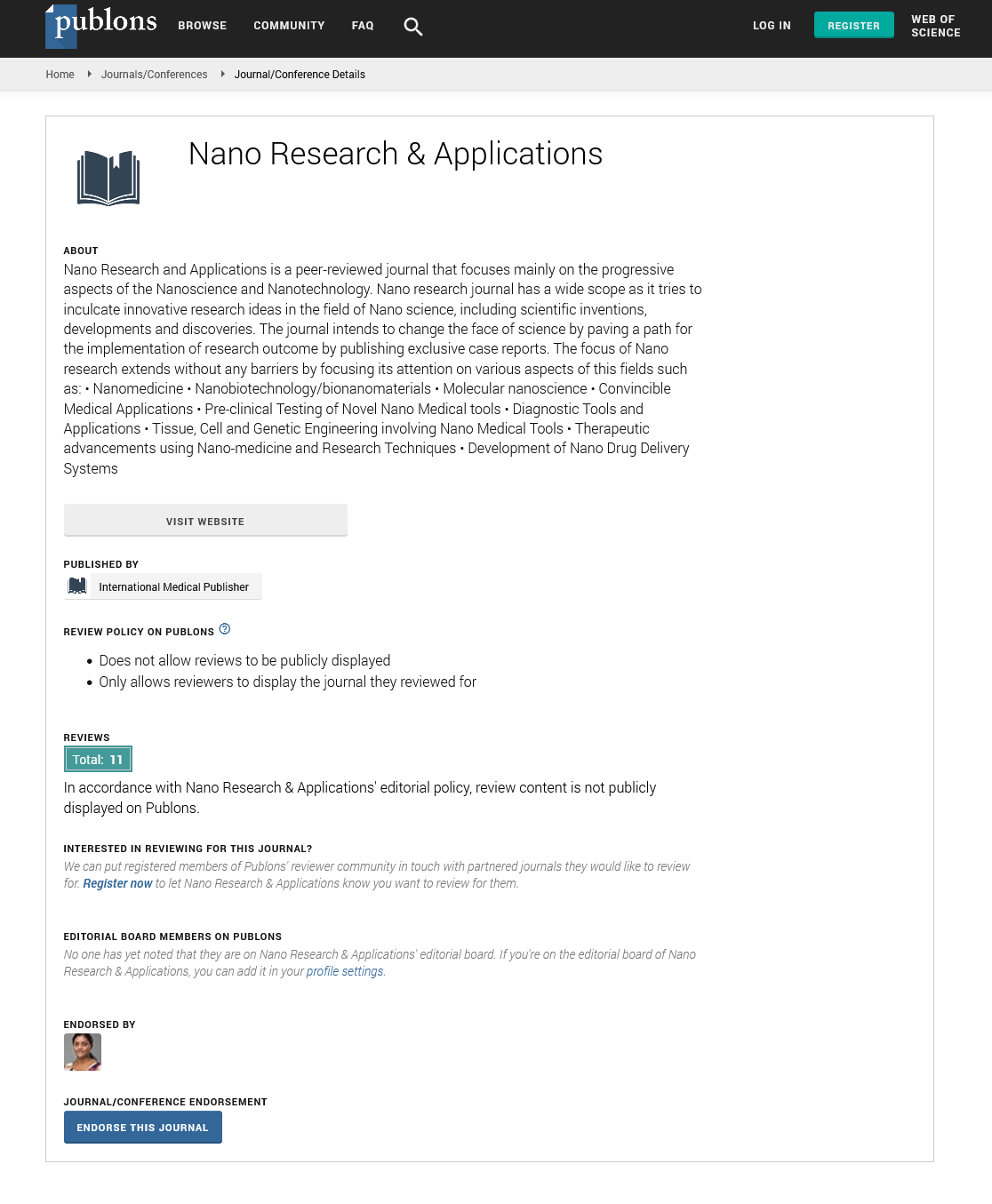ISSN : 2471-9838
Nano Research & Applications
Nanostructured sensors for colorectal cancer screening device
EuroSciCon Conference on Nanotechnology & Smart Materials
October 04 -06 ,2018 Amsterdam , Netherlands
G Zonta, N Landini and C Malagu
University of Ferrara, Italy SCENT S r l, Italy
ScientificTracks Abstracts: Nano Res Appl
DOI: 10.21767/2471-9838-C6-024
Abstract
Among the major goals of medicine, there is the preventive screening of tumours in order to prevent their degeneration. Colorectal cancer (CRC) shows a curability rate up to 90%, if identified at stage I. The work presented here started in 2013 with the reproduction of an artificial intestine inside a laboratory set-up, in order to find the best sensor array capable of recognizing CRC-gaseous biomarkers produced by tumour cells inside a mixture of intestinal interferers. After that, the approach changed, moving towards the analysis of fecal exhalations. After a feasibility study, that lead to the foundation of the start-up SCENT in 2015, the most efficient sensors combination was chosen. This study was conducted in collaboration with Hospital S Anna of Ferrara that provided the stool samples of people affected by CRC during surgery. Controls were healthy volunteers. This passage was fundamental to proof the recognition capability of sensors inside a portable device (SCENT A1), patented in Europe, and composed of a core of five nanostructured sensors, a pneumatic system and a specific electronics. After having obtained the acceptance by the ethics committee, a clinical validation protocol started in May 2016, to demonstrate the capability of SCENT A1 of identifying the difference between fecal exhalation of healthy and CRC-affected subjects. The protocol will end in 2019 and involves the Hospital S Anna and AUSL of Ferrara and Ospedale del Delta of Lagosanto. The tests are compared to the results of fecal occult blood test (FOBT) using colonoscopy as a gold standard. A specific algorithm of analysis has been realized for data classification. On 100 comparisons, the method correctly classified the 90% of healthy subjects, the 100% of CRC-affected and the 57% of low risk adenomas. If combined with FOBT, our test will considerably improve specificity, eliminating a huge number of non-operative colonoscopies
Biography
Giulia Zonta has completed her PhD in Matter Physics in Apr’ 2017 at the University of Ferrara. She is now working as a Postdoctoral Fellow at the Department of Physics and Earth Sciences, working with the Sensors Laboratory team, coordinated by Prof Cesare Malagù. She is the Sales Executive and Co-Founder of the start-up SCENT S r l, with the aim of realizing prototypes for tumour preventive screening and monitoring. She has published on reputed international journals and also a Reviewer. She is an Assistant in General Physic course..
E-mail: giulia.zonta@unife.it
Google Scholar citation report
Citations : 387
Nano Research & Applications received 387 citations as per Google Scholar report
Nano Research & Applications peer review process verified at publons
Abstracted/Indexed in
- Google Scholar
- China National Knowledge Infrastructure (CNKI)
- Directory of Research Journal Indexing (DRJI)
- WorldCat
- Publons
- Secret Search Engine Labs
- Euro Pub
Open Access Journals
- Aquaculture & Veterinary Science
- Chemistry & Chemical Sciences
- Clinical Sciences
- Engineering
- General Science
- Genetics & Molecular Biology
- Health Care & Nursing
- Immunology & Microbiology
- Materials Science
- Mathematics & Physics
- Medical Sciences
- Neurology & Psychiatry
- Oncology & Cancer Science
- Pharmaceutical Sciences
